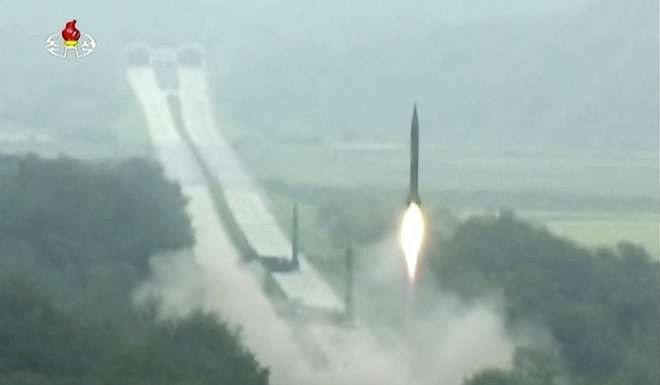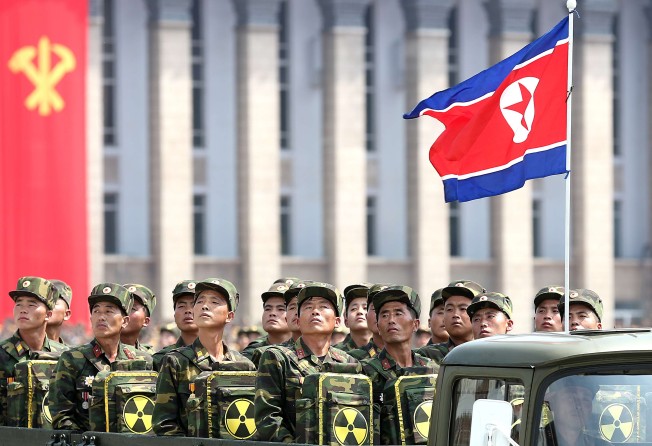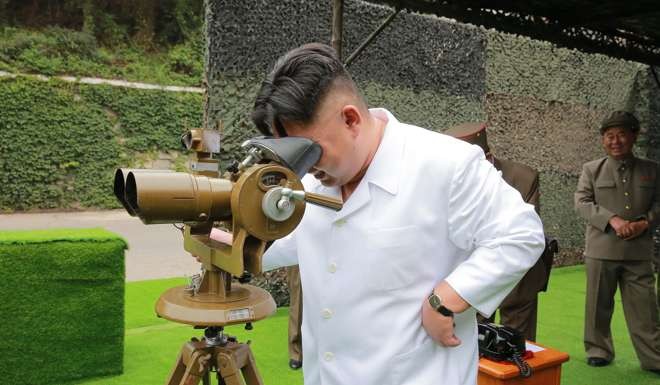
North Korea defies UN and vows to strengthen nuclear capability

North Korea vowed on Friday to further strengthen its nuclear weapons capability, in spite of UN condemnation and sanctions, and said it would never abandon its deterrence while it was threatened by nuclear-armed states.
In an address to the United Nations General Assembly, North Korean Foreign Minister Ri Yong Ho described his country’s nuclear weapons as “a righteous self-defense measure” against “constant nuclear threats of the United States.”
“Going nuclear-armed is the policy of our state,” he said. “As long as there exists a nuclear-weapon state in hostile relations with the DPRK, our national security and peace on the Korean peninsula can be defended only with reliable nuclear deterrence,” he said, using the acronym for the Democratic People’s Republic of Korea, North Korea’s official name.

Ri said North Korea “will continue to take measures to strengthen its national nuclear armed forces in both quantity and quality.”
Ri said the Korean peninsula was the world’s “most dangerous hotspot, which can even ignite the outbreak of nuclear war,” and the blame lay “squarely’ with the United States.
He accused the United States and South Korea of conducting massive “nuclear war exercises” aimed at “decapitation” of the North Korean leadership and occupation of its capital Pyongyang, while a call last year by North Korean leader Kim Jong Un to replace the 1953 Korean War armistice with a peace agreement had been ignored.
The planned US deployment of the THAAD anti-missile system in South Korea is not negotiable as part of efforts to agree new UN sanctions on North Korea after its fifth nuclear test, but Washington is confident tougher steps will be agreed before long, the senior U.S. diplomat for Asia said on Friday.
China, whose full backing is widely seen as crucial for sanctions on North Korea to be effective, is strongly opposed to the deployment of the Terminal High Altitude Area Defense system and some experts have argued it should be part of talks on new UN measures.
But asked whether THAAD was negotiable, Daniel Russel, the US assistant secretary of state for East Asia, referred to a US-South Korean agreement on the deployment.
“No. The two countries have made a decision,” he told Reuters.
North Korea’s nuclear and missiles tests have been condemned worldwide and have resulted in several rounds of UN sanctions, the most recent of which were adopted in March.
Discussions are already under way on a possible new UN sanctions resolution after North Korea’s fifth and largest nuclear test on September 9.
Ri said that by imposing sanctions on North Korea, the UN Security Council was “playing the role of covering up the highhandeness and arbitrariness of the United States.”

He accused the United States of threatening North Korea by flying B1-B strategic bombers over the military demarcation line on the Korean peninsula and warned: “We will never remain onlookers at it and the United States will have to face tremendous consequences beyond imagination.”
The United States flew two B1-Bs over South Korea on Wednesday in the second such flight since the September 9 test.
US Forces Korea said the flights were a show of force and of the US commitment to preserve the security of the peninsula and the region.